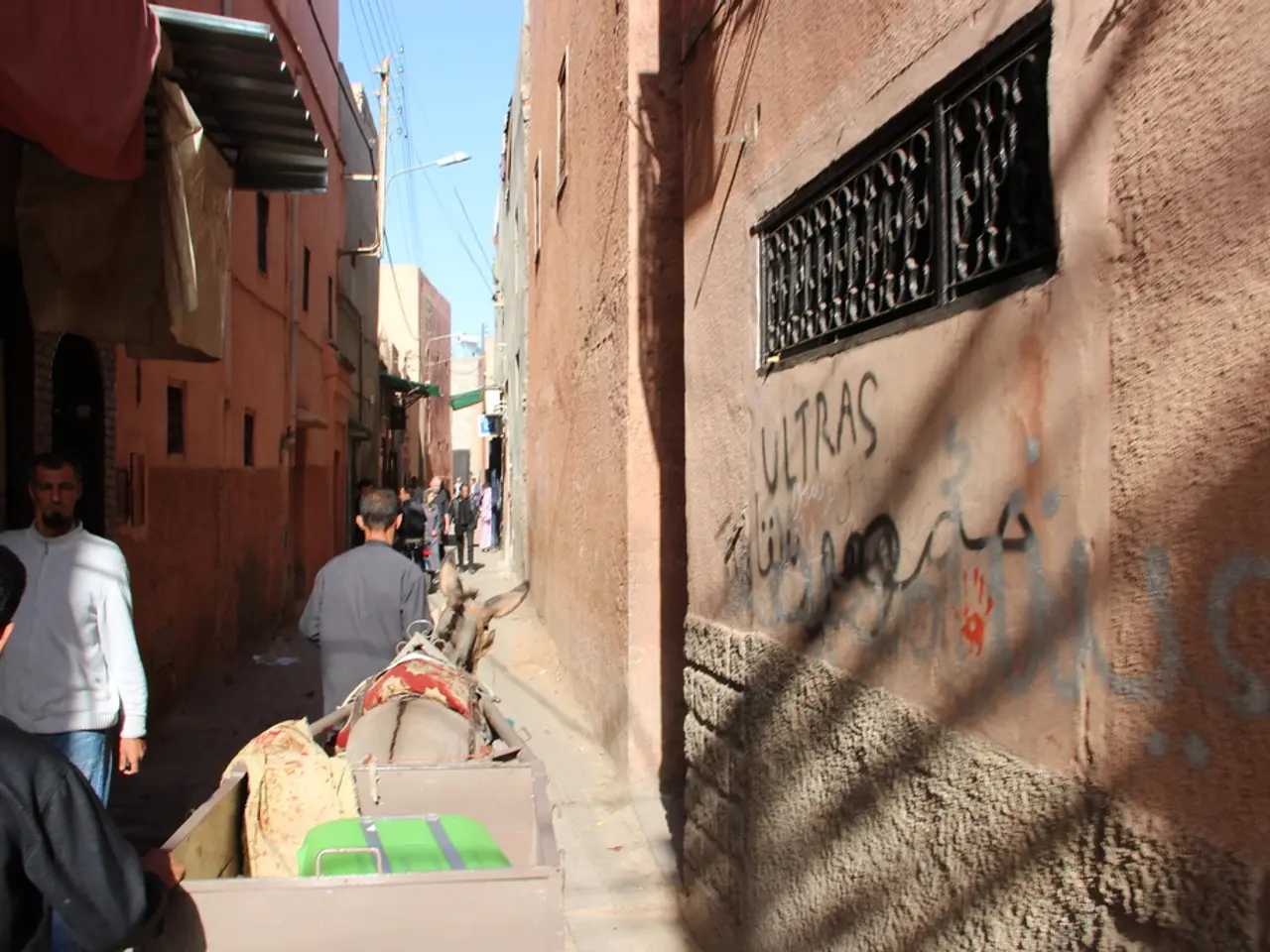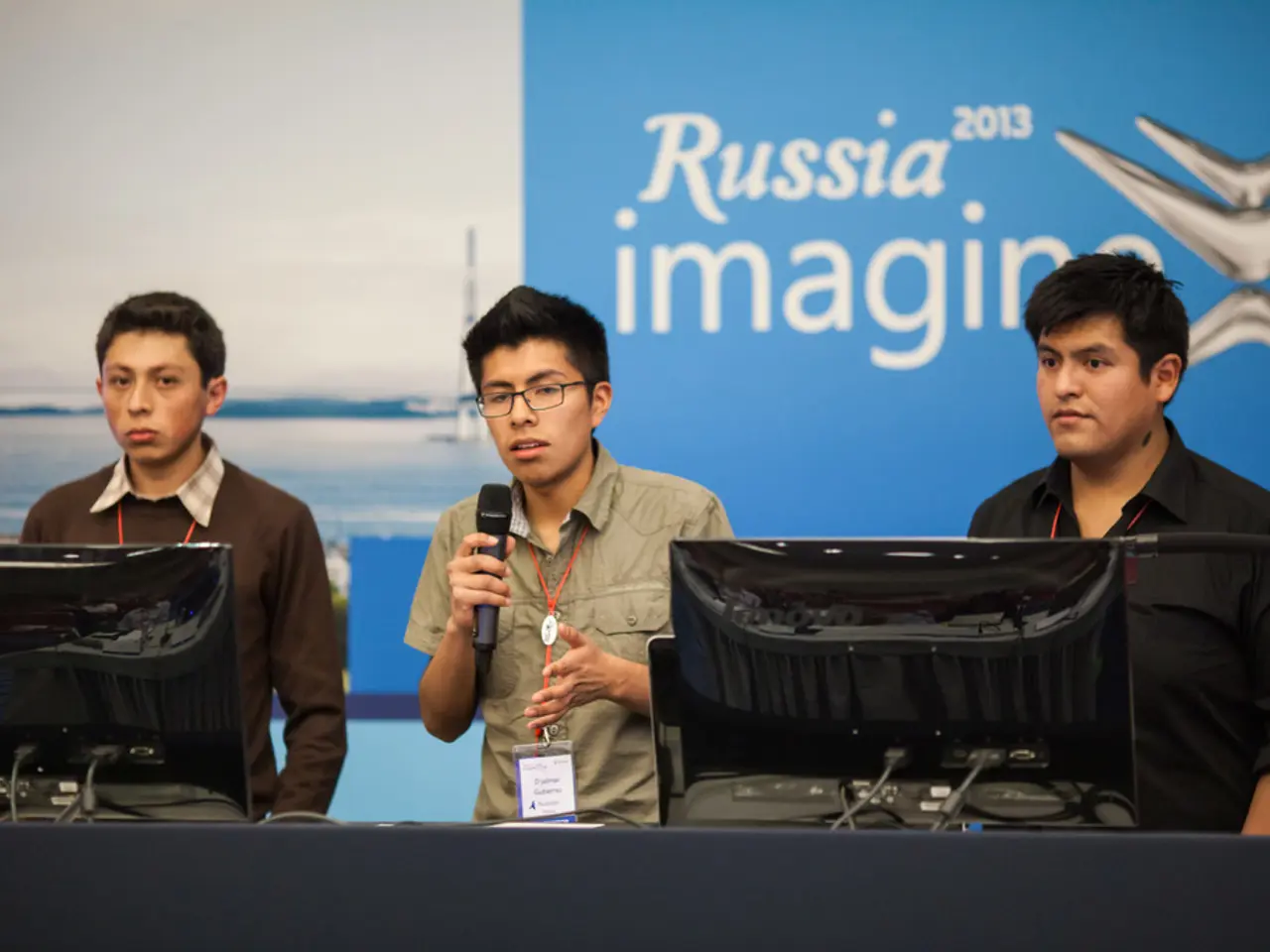Intelligence body expresses concern over potential escalation of Israeli operations in Gaza, stating findings at gathering concerning hostages
In a recent development, the Israeli government's decision to further expand its military operations in Gaza has sparked strong international reactions, including condemnation from multiple countries and organizations[1]. This escalation is part of the ongoing Israeli-Palestinian conflict and has intensified concerns about the humanitarian situation and prospects for peace.
The United Nations Security Council has underlined that there is no military solution to the conflict, warning about worsening conditions such as starvation in Gaza as a consequence of intensified hostilities[2]. In a joint statement, they condemned Israel’s decision to escalate military actions in Gaza, emphasizing the risks of further destabilization and humanitarian suffering.
Miroslav Jenca, UN Assistant Secretary-General, stated that such a move could lead to catastrophic consequences and endanger the lives of hostages in Gaza. However, Jenca did not specify who the hostages are or the nature of their detention[3]. He emphasized that Gaza is and must remain an integral part of the future Palestinian state, according to international law.
Jenca suggested establishing political and security frameworks to relieve the humanitarian catastrophe in Gaza, start early recovery and reconstruction, address security concerns, and achieve a sustainable two-state solution. He also proposed that Jerusalem should be the capital of both states, based on the pre-1967 lines.
Israeli foreign minister Gideon Saar spoke ahead of the session, highlighting the plight of Israeli hostages. Saar accused several countries, including Britain, France, Canada, of sabotaging a ceasefire deal with Hamas. He claimed these countries' actions gave Hamas "free gifts and incentives" to continue the war[4]. Saar also accused Hamas of being responsible for the continuation of the war by refusing to release Israeli hostages and lay down its arms.
Saar called for international pressure to be directed at Hamas, not Israel. He stated that Hamas is responsible for beginning the war by invading Israel and committing the Oct. 7 atrocities. However, he did not specify the number or identity of the Israeli hostages or the nature of their detention.
Some of the accused countries said they would recognize a Palestinian state unconditionally, while others made it dependent on Israel's actions in Gaza. The accused countries allegedly pressured Israel instead of Hamas during sensitive days in the negotiations, and announced plans to recognize a Palestinian state[5]. Saar stated that these countries prolonged the war by not focusing pressure on Hamas.
Jenca stressed that life-saving humanitarian aid must flow into Gaza at scale and without obstruction, and civilians must be guaranteed safe, unhindered access to assistance. He emphasized that Gaza is a complex and fragile environment, and any escalation could have severe consequences for the civilian population.
The ongoing conflict in Gaza continues to pose significant challenges to regional stability and peace. The international community is urging all parties to exercise restraint, engage in diplomatic efforts, and prioritize the protection of civilians and the pursuit of a peaceful resolution to the conflict.
[1] Source: Reuters [2] Source: UN News [3] Source: Al Jazeera [4] Source: The Jerusalem Post [5] Source: The Times of Israel
- The escalation of war-and-conflicts in Gaza has led to concerns about the middle east politics, with the United Nations General-news emphasizing the worsening humanitarian situation as a consequence of increased hostilities.
- Miroslav Jenca, UN Assistant Secretary-General, has urged the international community to prioritize art (in the sense of creation) and politics, suggesting political and security frameworks to alleviate the humanitarian crisis in Gaza, thus addressing general-news concerning the conflict.
- News across the globe has reported the involvement of numerous countries in the Israeli-Palestinian conflict, with some accused of sabotaging peace efforts by emphasizing the plight of Israeli hostages rather than applying pressure on the opposing side, Hamas.








